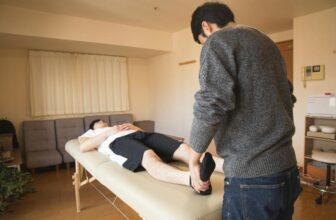
Exploring the benefits of physical therapy for chronic pain can unveil a world of possibilities for managing and improving your condition. From increased flexibility and mobility to enhanced pain management techniques, physical therapy offers a holistic approach to addressing chronic pain. But that's just the beginning. The impact of physical therapy on chronic pain goes beyond symptom management, delving into aspects of daily life that can be profoundly transformed by consistent therapy sessions.
Improved Flexibility and Mobility
By incorporating targeted stretches and exercises, physical therapy enhances your flexibility and mobility, empowering you to move more freely and comfortably. These specific movements help to increase your range of motion, allowing you to perform daily tasks with greater ease. As you engage in these activities under the guidance of a physical therapist, you'll gradually notice improvements in your ability to bend, reach, and twist without experiencing discomfort.
Moreover, enhanced flexibility and mobility achieved through physical therapy can contribute to better posture and balance. The exercises prescribed by your therapist target key muscle groups, helping to strengthen and stabilize your body. This newfound strength and balance not only reduce the risk of falls and injuries but also promote a more aligned and efficient movement pattern.
Through consistent participation in physical therapy sessions, you'll not only experience immediate benefits in your flexibility and mobility but also build a foundation for long-term health and wellness. Embrace the opportunity to improve your physical capabilities and reclaim your freedom of movement with the help of targeted stretches and exercises tailored to your specific needs.
Enhanced Pain Management
Improved pain management is a key benefit of physical therapy for individuals dealing with chronic pain. Through targeted exercises and techniques, physical therapy can help you better manage and alleviate your pain. Physical therapists are trained to assess your specific condition and develop personalized treatment plans to address your pain symptoms effectively. By working with a physical therapist, you can learn proper body mechanics, posture, and movement patterns that can reduce pain levels and prevent further discomfort.
Physical therapy can also incorporate modalities such as heat, ice, ultrasound, or electrical stimulation to help manage your pain. These modalities can provide relief and promote healing in a safe and controlled manner. Additionally, physical therapy focuses on improving your overall function and quality of life, which can contribute to a decrease in pain perception over time.
Increased Strength and Endurance
Physical therapy can help you build increased strength and endurance to better cope with chronic pain. Through targeted exercises and tailored treatment plans, physical therapy aims to improve your muscle strength and overall physical endurance. By working with a physical therapist, you can engage in activities and exercises that gradually challenge your body, leading to enhanced strength and stamina over time.
Increased strength can help support your body better, reducing the strain on areas affected by chronic pain. Building endurance allows you to engage in daily activities with less fatigue and discomfort. As you progress in your physical therapy sessions, you may notice improvements in your ability to perform tasks that were once challenging due to pain or weakness.
Better Quality of Life
With physical therapy, you can experience a significant enhancement in your overall quality of life. Chronic pain often restricts your ability to engage in daily activities, affecting your mood and general well-being. Physical therapy can help alleviate this burden by improving your mobility, reducing pain, and enhancing your overall physical function. As you progress through therapy, you may notice that you can perform tasks with greater ease and less discomfort.
Furthermore, physical therapy can also have a positive impact on your mental health. By actively participating in your treatment and seeing improvements in your condition, you may experience a boost in self-confidence and a more positive outlook on life. This can lead to reduced stress levels and an overall sense of well-being.




